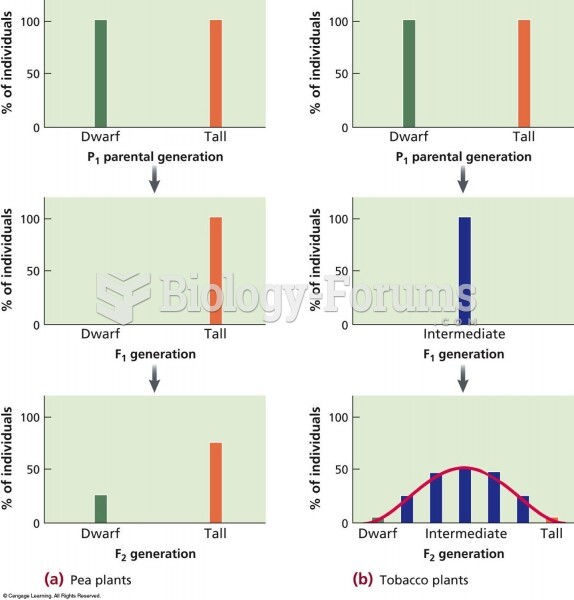|
|
|
About 80% of major fungal systemic infections are due to Candida albicans. Another form, Candida peritonitis, occurs most often in postoperative patients. A rare disease, Candida meningitis, may follow leukemia, kidney transplant, other immunosuppressed factors, or when suffering from Candida septicemia.
Colchicine is a highly poisonous alkaloid originally extracted from a type of saffron plant that is used mainly to treat gout.
Warfarin was developed as a consequence of the study of a strange bleeding disorder that suddenly occurred in cattle on the northern prairies of the United States in the early 1900s.
It is believed that the Incas used anesthesia. Evidence supports the theory that shamans chewed cocoa leaves and drilled holes into the heads of patients (letting evil spirits escape), spitting into the wounds they made. The mixture of cocaine, saliva, and resin numbed the site enough to allow hours of drilling.
In the United States, there is a birth every 8 seconds, according to the U.S. Census Bureau's Population Clock.
 When working with the patient with impaired hearing, the interpreter needs to direct questions to th
When working with the patient with impaired hearing, the interpreter needs to direct questions to th
 This Native American depiction of the Sand Creek Massacre, painted on a buffalo hide, shows the Indi
This Native American depiction of the Sand Creek Massacre, painted on a buffalo hide, shows the Indi





